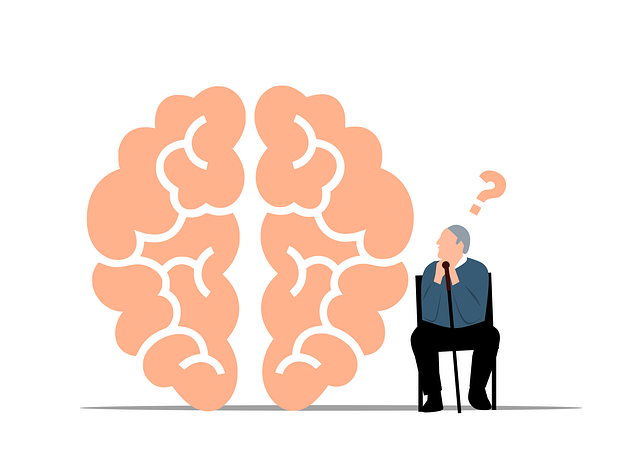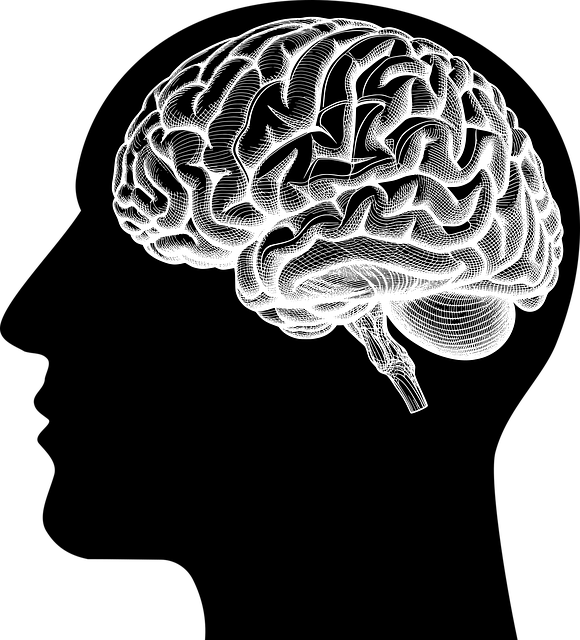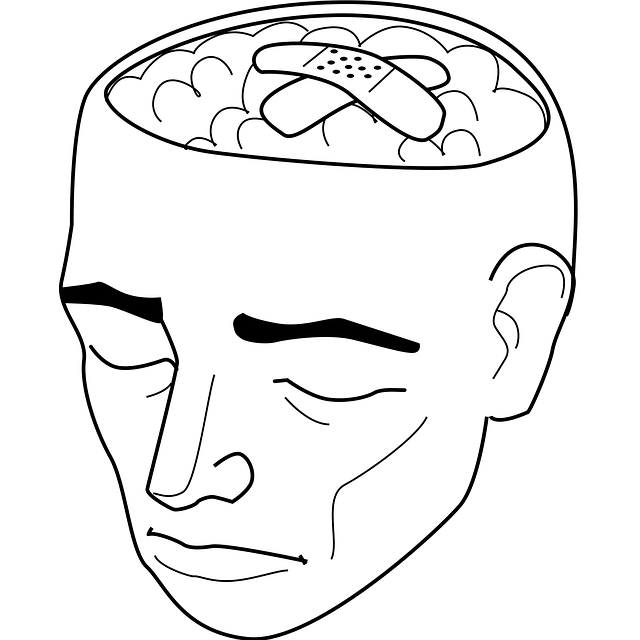Social Skills Training (SST) is an evidence-based therapeutic approach designed to enhance the social well-being of individuals with mental health conditions, including those facing terminal illnesses. By combining practical exercises, role-playing, and group activities, SST goes beyond traditional talk therapy to develop communication skills, assertiveness, empathy, and resilience. Public awareness campaigns play a vital role in normalizing discussions around terminal illness and encouraging early intervention. Therapy tailored for adults with terminal illnesses, focusing on social skills training and mental wellness coaching, can significantly improve their quality of life. Integrating SST with traditional therapies like CBT or mindfulness boosts recovery outcomes and equips patients with essential communication and relationship management strategies. Community outreach programs focused on SST create safe spaces for practice, empowering individuals to navigate societal challenges while improving risk management for healthcare professionals.
Social skills training is a powerful tool in supporting individuals with mental health conditions, offering a comprehensive approach to enhancing social interactions and overall well-being. This article explores the importance of such training, focusing on its potential to improve quality of life. We delve into the impact of mental health on social functioning, provide assessment strategies for identifying areas of need, and offer evidence-based techniques.
Additionally, we discuss integrating social skills training with other therapies, ensuring a holistic treatment plan tailored to individual needs, particularly relevant for those navigating terminal illness.
- Understanding Social Skills Training: A Comprehensive Approach
- The Impact of Mental Health Conditions on Social Interactions
- Identifying Areas for Improvement: Assessment and Goal Setting
- Evidence-Based Strategies for Enhancing Social Functioning
- Integrating Social Skills Training with Other Therapies for Optimal Support
Understanding Social Skills Training: A Comprehensive Approach

Social Skills Training (SST) is a comprehensive therapeutic approach designed to help individuals with mental health conditions improve their interpersonal interactions and overall social well-being. It goes beyond traditional talk therapy by incorporating practical exercises and real-life scenarios to foster better communication, assertiveness, and empathy. SST is particularly beneficial for adults facing terminal illnesses, offering them tools to navigate social challenges and maintain meaningful connections.
This training focuses on self-awareness exercises that help participants recognize their emotions and those of others. It also emphasizes resilience building, teaching coping strategies to handle social stressors effectively. Through role-playing and group activities, individuals learn how to initiate and sustain conversations, manage conflicts, and build supportive relationships. Public awareness campaigns play a crucial role in normalizing these discussions, reducing stigma, and encouraging people to seek therapy for adults terminal illness as part of their holistic care plan.
The Impact of Mental Health Conditions on Social Interactions

Mental health conditions can significantly impact an individual’s ability to engage in social interactions, leading to isolation and further exacerbating symptoms. Conditions such as depression, anxiety disorders, and even terminal illness bring unique challenges to social dynamics. Those dealing with depression, for instance, may struggle with initiating conversations or maintaining eye contact, while individuals with anxiety disorders might find social gatherings overwhelming, causing them to withdraw. In the context of terminal illnesses, patients often face not only physical but also emotional and social struggles, as they navigate their new reality and cope with potential life changes.
The impact extends beyond the individual, affecting their support networks and communities at large. Stigma surrounding mental illness contributes to a culture of silence, making it harder for people to seek help. Public awareness campaigns play a vital role in stigma reduction efforts, aiming to educate the public about these conditions and foster understanding. By increasing awareness, these campaigns can encourage early intervention and better support systems for those struggling with their mental health, ultimately promoting healthier social interactions and improved quality of life.
Identifying Areas for Improvement: Assessment and Goal Setting

Identifying areas for improvement is a crucial step in social skills training, especially for individuals navigating mental health conditions like terminal illness. The initial assessment process involves a comprehensive look at an individual’s current social functioning, communication patterns, and interactions with others. This may include observing how they engage in conversations, manage emotions during social encounters, and resolve conflicts. Therapists can use structured assessments or semi-structured interviews to gain insights into these areas, tailoring the training to address specific challenges.
During goal setting, individuals with terminal illnesses, alongside their therapists, can collaboratively determine realistic objectives for enhancing social skills. These goals could range from improving assertiveness in communication to developing effective conflict resolution techniques. Incorporating mindfulness meditation and stress reduction methods may also be beneficial, helping to cultivate calmness and presence during social interactions. Such tailored interventions aim to empower individuals to navigate social situations with greater confidence and ease, fostering meaningful connections despite their mental health challenges.
Evidence-Based Strategies for Enhancing Social Functioning

Social skills training has emerged as a powerful tool within mental health treatment, offering evidence-based strategies to enhance social functioning for individuals navigating various challenges. For adults facing terminal illnesses, social withdrawal and isolation can be common, yet supportive therapy plays a crucial role in maintaining mental wellness. Mental wellness coaching programs focus on developing essential social competencies, encouraging meaningful connections, and fostering a sense of belonging—all vital aspects of coping with significant health conditions.
Trauma support services often incorporate these training methods to reduce the stigma associated with mental illness. By participating in group sessions or one-on-one therapy, individuals learn effective communication techniques, improve emotional regulation, and gain confidence in social interactions. This tailored approach not only addresses the symptoms of mental health disorders but also empowers individuals to thrive in a supportive environment, ultimately enhancing their overall quality of life.
Integrating Social Skills Training with Other Therapies for Optimal Support

Integrating Social Skills Training with other therapeutic approaches offers a holistic and effective support system for individuals dealing with mental health conditions. When combined with traditional therapies like cognitive-behavioral therapy (CBT) or mindfulness practices, social skills training can significantly enhance recovery outcomes, especially for those facing terminal illnesses. This comprehensive approach ensures that patients develop not just clinical skills but also the confidence to navigate social interactions, fostering a sense of belonging and improving their overall quality of life.
For instance, a community outreach program implementation focusing on social skills training can benefit adults with terminal illnesses by providing them with strategies to communicate their needs, manage relationships, and build a support network. This not only aids in self-esteem improvement but also facilitates better risk management planning for mental health professionals involved in their care. Such programs create a safe space for individuals to practice and receive feedback, ultimately empowering them to engage more effectively with society and cope with the challenges of their condition.
Social skills training, as a comprehensive and evidence-based approach, plays a pivotal role in enhancing social functioning for individuals navigating mental health conditions. By understanding the impact of these conditions on social interactions, professionals can identify specific areas for improvement through assessment and goal setting. Implementing evidence-based strategies enables individuals to develop and refine essential social skills, fostering better connections and overall well-being. Integrating this training with other therapeutic modalities offers a holistic support system, particularly beneficial for those managing mental health alongside a terminal illness, ensuring they receive the comprehensive care necessary for navigating both challenges.














